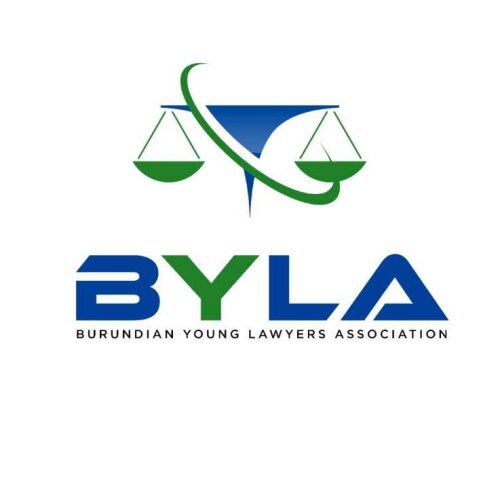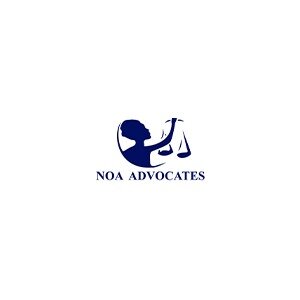Best Public-Private Partnerships (PPP) Lawyers in Bujumbura
Share your needs with us, get contacted by law firms.
Free. Takes 2 min.
List of the best lawyers in Bujumbura, Burundi
About Public-Private Partnerships (PPP) Law in Bujumbura, Burundi
Public-Private Partnerships, commonly referred to as PPPs, are collaborative agreements between government entities and private sector companies to finance, build, and operate projects such as infrastructure, public services, or development initiatives. In Bujumbura, Burundi’s largest city and economic hub, PPPs play a crucial role in addressing development needs, modernizing public infrastructure, and improving service delivery. The legal framework for PPPs sets out guidelines and requirements designed to ensure transparency, value for money, and the equitable sharing of risks and rewards among all involved parties.
Why You May Need a Lawyer
Engaging in a Public-Private Partnership often involves complex legal arrangements and negotiations. Here are some common scenarios where seeking legal advice is important:
- Drafting or reviewing PPP agreements, contracts, and tenders
- Navigating regulatory approvals and compliance with local laws
- Assessing risk allocation and financial responsibilities between parties
- Resolving contractual disputes or renegotiating terms
- Understanding tax implications, incentives, and government guarantees
- Protecting intellectual property and confidential information
- Ensuring compliance with procurement rules and anti-corruption laws
- Representing interests during negotiations or arbitration
Local Laws Overview
Public-Private Partnerships in Bujumbura are governed mainly by national legislation, particularly the Law No. 1/23 of September 4, 2012, on Public-Private Partnerships, as well as various sector-specific regulations and decrees. Key legal aspects to consider include:
- Legal Framework: The PPP Law establishes processes for selecting, contracting, and monitoring PPP projects. It defines roles for public authorities and provides mechanisms for oversight.
- Procurement and Transparency: PPP projects must follow competitive bidding procedures to ensure fairness and transparency.
- Approval Process: Projects undergo feasibility studies, risk assessments, and require approval from designated government bodies before implementation.
- Contractual Safeguards: Standard PPP contracts include dispute resolution procedures, performance standards, and clear methods for handling contractual changes or early termination.
- Regulatory Oversight: Oversight is provided by governmental agencies such as the PPP Unit within the Ministry of Finance, which monitors compliance and implementation.
- Dispute Resolution: Contracts may stipulate local or international arbitration to resolve disputes, ensuring legal protection for both domestic and foreign investors.
Frequently Asked Questions
What types of projects qualify as Public-Private Partnerships in Bujumbura?
PPPs can be used for infrastructure projects such as roads, hospitals, water supply, power generation, and public buildings, as well as the delivery of essential public services.
Who regulates Public-Private Partnerships in Bujumbura?
The primary regulatory body is the PPP Unit within the Ministry of Finance, assisted by sector ministries and various oversight bodies depending on the project’s nature.
What legal steps are involved in launching a PPP project?
The main steps are conducting a feasibility study, preparing tender documents, undergoing a competitive bidding process, negotiating and signing the contract, and securing approvals from the appropriate authorities.
How are risks and responsibilities shared in PPP agreements?
Typically, project risks and responsibilities such as financing, construction, operation, and maintenance are allocated between public and private partners based on their capacity to manage these risks effectively.
What kind of support can the government provide to PPP projects?
Support may include guarantees, tax incentives, co-financing, access to land, or other regulatory facilitation depending on project size and strategic importance.
How can contractual disputes be resolved?
Disputes can be resolved through negotiation, mediation, or arbitration, either locally in Burundi or through international arbitral institutions if stipulated in the contract.
Are there specific requirements for foreign investors in PPP projects?
Foreign investors must comply with national investment laws, participate in local tendering processes, and may need to partner with local entities or adhere to labor and tax regulations.
What standards of transparency and anti-corruption apply to PPPs?
PPPs in Burundi are subject to public procurement and anti-corruption legislation, requiring open bidding, regular audits, and disclosure of key information to prevent misuse of public resources.
How can environmental and social impacts of PPPs be addressed?
PPP projects must comply with national environmental regulations and may need to conduct environmental impact assessments and engage in community consultations as part of the approval process.
Can PPP contracts be amended or ended early?
Yes, contracts may include provisions for amendment, renegotiation, or early termination under specific circumstances, although such actions usually require mutual consent and may involve compensation.
Additional Resources
If you are seeking further information or support related to Public-Private Partnerships in Bujumbura, these resources may be helpful:
- The PPP Unit at the Ministry of Finance, Planning, and Economic Development
- Burundi Investment Promotion Authority (API)
- Chamber of Commerce and Industry of Burundi (CCIB)
- National Public Procurement Regulatory Authority (ARMP)
- Burundi Bar Association for legal referrals
- African Development Bank local office for PPP guidance
Next Steps
If you are considering becoming involved in a Public-Private Partnership in Bujumbura or require legal assistance, here is how you can proceed:
- Identify and consult a lawyer or law firm experienced in PPPs and related local regulations.
- Gather all necessary documents, such as feasibility studies, project plans, and correspondence with public authorities.
- Prepare a list of your objectives, concerns, and questions about the PPP process.
- Contact relevant governmental bodies such as the PPP Unit for guidance on current procedures and available support.
- Consider seeking expert advice on financial, technical, and environmental aspects to complement legal guidance.
- Stay informed about updates in PPP legislation and best practices by attending workshops, seminars, and industry events in Bujumbura.
With the right legal support and an understanding of the local legal framework, you can navigate PPP opportunities and challenges effectively while contributing to the development of Bujumbura.
Lawzana helps you find the best lawyers and law firms in Bujumbura through a curated and pre-screened list of qualified legal professionals. Our platform offers rankings and detailed profiles of attorneys and law firms, allowing you to compare based on practice areas, including Public-Private Partnerships (PPP), experience, and client feedback.
Each profile includes a description of the firm's areas of practice, client reviews, team members and partners, year of establishment, spoken languages, office locations, contact information, social media presence, and any published articles or resources. Most firms on our platform speak English and are experienced in both local and international legal matters.
Get a quote from top-rated law firms in Bujumbura, Burundi — quickly, securely, and without unnecessary hassle.
Disclaimer:
The information provided on this page is for general informational purposes only and does not constitute legal advice. While we strive to ensure the accuracy and relevance of the content, legal information may change over time, and interpretations of the law can vary. You should always consult with a qualified legal professional for advice specific to your situation.
We disclaim all liability for actions taken or not taken based on the content of this page. If you believe any information is incorrect or outdated, please contact us, and we will review and update it where appropriate.













